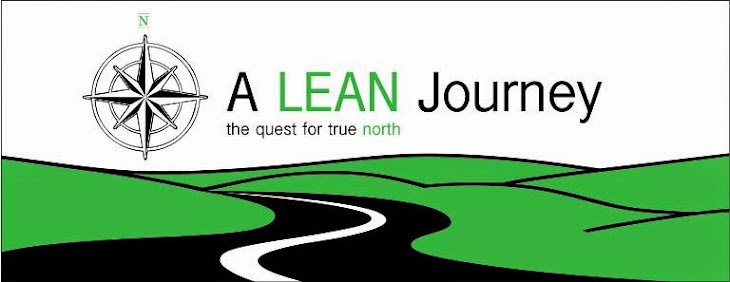How
do you prepare your employees for the big game? Coaching. The most effective
leaders see themselves not as managers or supervisors, but as coaches.
In
a sports environment, a “coach” is someone who trains athletes or athletic
teams to achieve their maximum physical performance. In the business world, a
“coach” refers to a manager who leads a team of employees, actualizes the
professional potential of his or her employees, and achieves a “winning”
service or product with his or her team.
a sports environment, a “coach” is someone who trains athletes or athletic
teams to achieve their maximum physical performance. In the business world, a
“coach” refers to a manager who leads a team of employees, actualizes the
professional potential of his or her employees, and achieves a “winning”
service or product with his or her team.
Coaching
is the process of preparing your employees to succeed. It is an ongoing,
two-way process that involves using constructive, consistent feedback to
reinforce positive behavior, resulting in improved performance.
is the process of preparing your employees to succeed. It is an ongoing,
two-way process that involves using constructive, consistent feedback to
reinforce positive behavior, resulting in improved performance.
Coaching
must be part of business processes if you want the most benefit. Coaching is
related to several other organizational processes including change management,
team building, facilitation, performance management, and strategic planning.
You can acquire many coaching tips from these other processes. You should
position your coaching session as a part of these other processes for the most
benefit.
must be part of business processes if you want the most benefit. Coaching is
related to several other organizational processes including change management,
team building, facilitation, performance management, and strategic planning.
You can acquire many coaching tips from these other processes. You should
position your coaching session as a part of these other processes for the most
benefit.
The
collaborative and engaging style of a “Coach” enables leaders to be a
“manager-coach”. This approach focuses on developing employees in
order to achieve business results rather than managing their every move. The mindset
of the manager-coach is to create an environment that fosters learning,
independent thinking and opportunities to contribute. The manager-coach doesn’t
want to be seen as a solution provider. Rather, they want to be seen as a
facilitator, paving the way for the employee to achieve their results.
Manager-Coaches are a role model for others. They are excellent listeners and
communicators, providing perspective and encouragement while also setting high
standards and expectations.
collaborative and engaging style of a “Coach” enables leaders to be a
“manager-coach”. This approach focuses on developing employees in
order to achieve business results rather than managing their every move. The mindset
of the manager-coach is to create an environment that fosters learning,
independent thinking and opportunities to contribute. The manager-coach doesn’t
want to be seen as a solution provider. Rather, they want to be seen as a
facilitator, paving the way for the employee to achieve their results.
Manager-Coaches are a role model for others. They are excellent listeners and
communicators, providing perspective and encouragement while also setting high
standards and expectations.
The
most useful coaching is situational. Consider the difficulty of the task being
coached, the skills and experience of the person you are coaching and their
preferences in terms of how much ‘help’ should be given. Sometimes people don’t
want/need ‘the answer’, they need a little assistance in finding out how to get
the answer themselves.
most useful coaching is situational. Consider the difficulty of the task being
coached, the skills and experience of the person you are coaching and their
preferences in terms of how much ‘help’ should be given. Sometimes people don’t
want/need ‘the answer’, they need a little assistance in finding out how to get
the answer themselves.
During
coaching sessions, you are advised to make suggestions or ask questions instead
of telling the coachee what to do. Help them understand for themselves what is
to be done. Sometimes this is not a good idea. Your coachee may get confused
and wonder, “Now what exactly did my coach want me to do?” Don’t feel
guilty about providing unambiguous, no-nonsense instructions–when it is
appropriate.
coaching sessions, you are advised to make suggestions or ask questions instead
of telling the coachee what to do. Help them understand for themselves what is
to be done. Sometimes this is not a good idea. Your coachee may get confused
and wonder, “Now what exactly did my coach want me to do?” Don’t feel
guilty about providing unambiguous, no-nonsense instructions–when it is
appropriate.
Development
planning is more successful when the person’s manager or coach is involved. A
coaching plan provides a vehicle for organizing what you need to do to help
your people. The coaching and development process need to work together.
planning is more successful when the person’s manager or coach is involved. A
coaching plan provides a vehicle for organizing what you need to do to help
your people. The coaching and development process need to work together.
The
purpose of coaching is an interaction not an audit. The learner should know
when the coach is coming and what he/she will ask. They can prepare the
information in advance of the coaching cycle. The purpose is not to control or
get people to do what they say. There should be a genuine interest in both
parties in what you are trying to achieve, what you are learning, and what will
be the next experiment.
purpose of coaching is an interaction not an audit. The learner should know
when the coach is coming and what he/she will ask. They can prepare the
information in advance of the coaching cycle. The purpose is not to control or
get people to do what they say. There should be a genuine interest in both
parties in what you are trying to achieve, what you are learning, and what will
be the next experiment.
The
best way to empower employees is not to manage them. Coach them to success.
This is a process of developing their skills and providing them specific
feedback to meet high standards. Employees want to be on the same team with
their bosses. Be their coach and lead the team to success!
best way to empower employees is not to manage them. Coach them to success.
This is a process of developing their skills and providing them specific
feedback to meet high standards. Employees want to be on the same team with
their bosses. Be their coach and lead the team to success!
 A Lean Journey
A Lean Journey 





Leave a Comment
Your email address will not be published. Required fields are marked with *